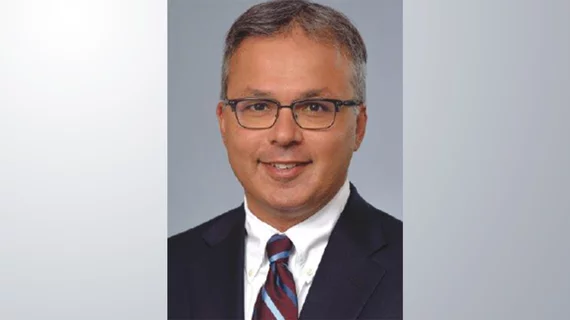Beyond Busting Burnout: Lessons on Radiologist Wellbeing from Positive Psychology
While physician burnout as an epidemic is finally gaining more attention, we may be missing a larger issue. The absence of burnout does not equal wellness, and most radiologists are not burned out.
We are able to function. We get through our days, make it to some of our kids’ activities and even manage to go out to dinner on the weekends. We survive the work week as we look forward to our next vacation.
We do this because it is what we have always done. We put our heads down and do our work. To help us get through stressful times, we often project ourselves past the next exam or to the next stage of our lives. We become masters of delayed gratification. We get into medical school or match into a good residency spot or make partner or have enough money to retire. We develop the mindset of “I’ll be happy when …”
Along the way, we may have some bright spots—falling in love, having kids, taking great vacations. We may even reward ourselves for our hard work with a new car or nicer house. We deserve it. But deep inside, we feel that “something is missing.” We have achieved most if not all of the goals we set for ourselves. Yet despite our hard work, many of us remain unfulfilled with our careers and often with our lives.
 What is it that we need? A better job with more money? A different car? A different title? Better vacations?
What is it that we need? A better job with more money? A different car? A different title? Better vacations?
I have struggled with these questions and many more. How do I stop wanting what I don’t have and start wanting what I do have? How can I fully enjoy the present while also preparing for a better future? How can I spend quality time with my kids while they are still around? How can I have a career that uses all my potential?
Of all the questions I’ve asked myself, the most important one was this: How can I learn to flourish and not just function?
Fortunately, I found answers to these questions. They’re there for the finding in in the relatively new field of positive psychology, which has been defined as “the scientific study of human flourishing and an applied approach to optimal functioning.”
Unlike traditional psychology, which alleviates distress and moves a patient from a -8 to a 0 or +1 on the flourishing scale, positive psychology focuses on a patient who is functioning at a +1 and tries to move them to a +8. We need both areas of focus.
Many people are functioning well by most standards but are nowhere near their potential level of fulfillment.
So how can we reach our highest potential by applying positive psychology? A few principles are especially helpful for physicians to consider if they’re interested in seeking greater fulfillment at work and in life.
The first principle is a model of happiness that was described by Martin Seligman, PhD, considered the father of positive psychology. If we follow his thinking, there is a continuum comprising three levels of happiness: the pleasant life, the good life and the meaningful life. The pleasant life involves hedonistic pursuits where we chase money, pleasure and possessions. Most of society is stuck in this stage. The good life is where we use our unique strengths to develop our best self. This is the stage of personal character development and virtue that Aristotle and others preached as the path to happiness.
Finally, when we use our fully realized potential and best self in the service of a cause larger than ourselves, we have entered the meaningful life. There are many other models of happiness, and even Seligman has updated this original model. The exact terminology does not matter. The simplicity of this model is what is important and can explain much of the discontent that many of us feel.
We keep searching for the bigger house or the nicer car but don’t realize that—until we work on ourselves and our own potential and then use that potential in the service of others—we will likely remain unfulfilled.
Many of us try to fulfill our unrealized potential by focusing on our kids. We try to replace our discontent with their contentment and achievement. This is why we have parents yelling at coaches and umpires at sporting events and why 8-year-old baseball players have private hitting instructors. It is why every parent thinks their kids should be in the advanced classes.
What stage are you in? Are you continuing to grow professionally—or counting down the years until retirement? Are you thinking about ways to better serve your patients, referring physicians and technologists—or focusing only on your RVUs?
As radiologists, we have a tremendous opportunity to positively impact many people every day. If we are stuck in the pleasant life, our focus is too narrow. We are only concerned with our possessions, vacations and bank account. While these are important, they are not enough. The real problem is that this stage lacks personal growth, purpose and meaning.
In future columns, we will discuss how to move past the pleasant life as we begin to work on ourselves to enter the good life.
Dr. Katyal is a researcher and practicing radiologist certified in positive psychology by the Wholebeing Institute. He is currently teaching at La Roche College outside Pittsburgh.

